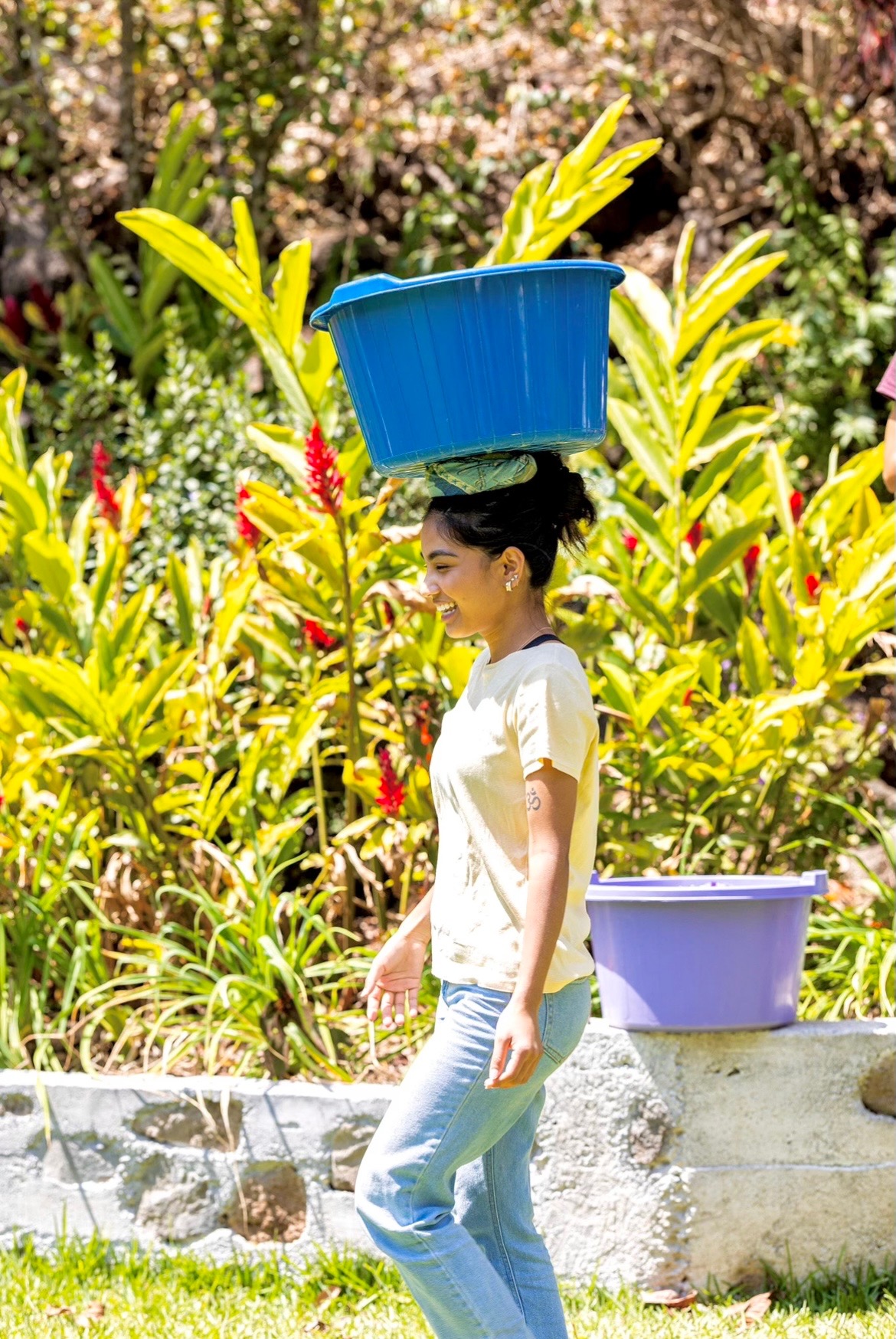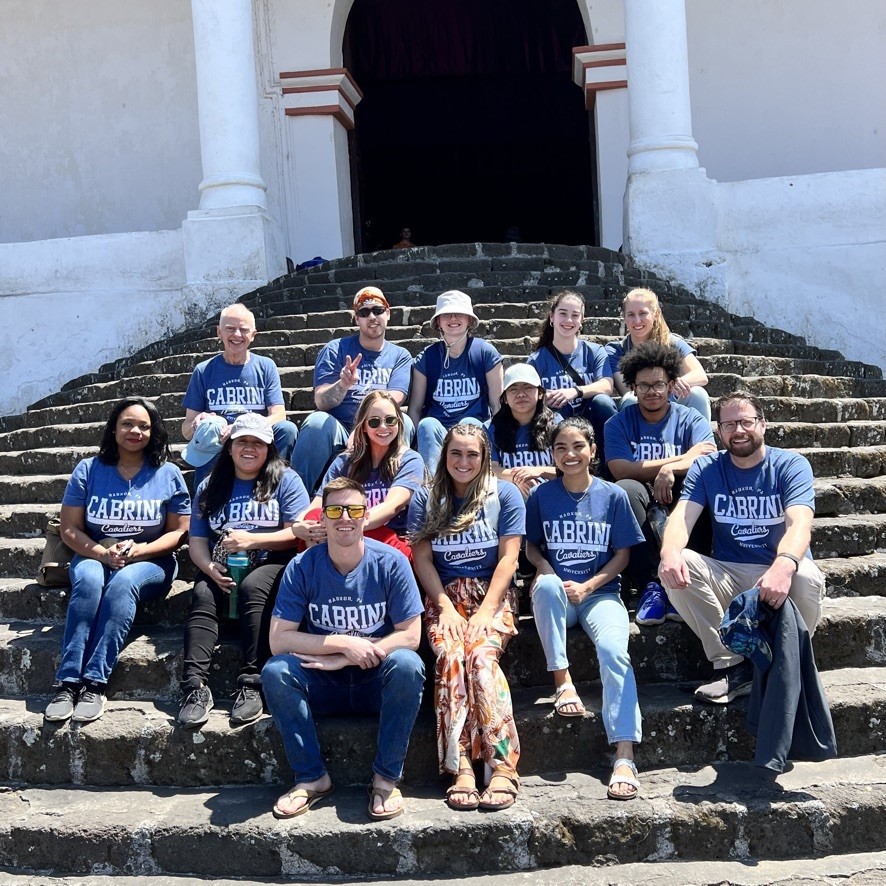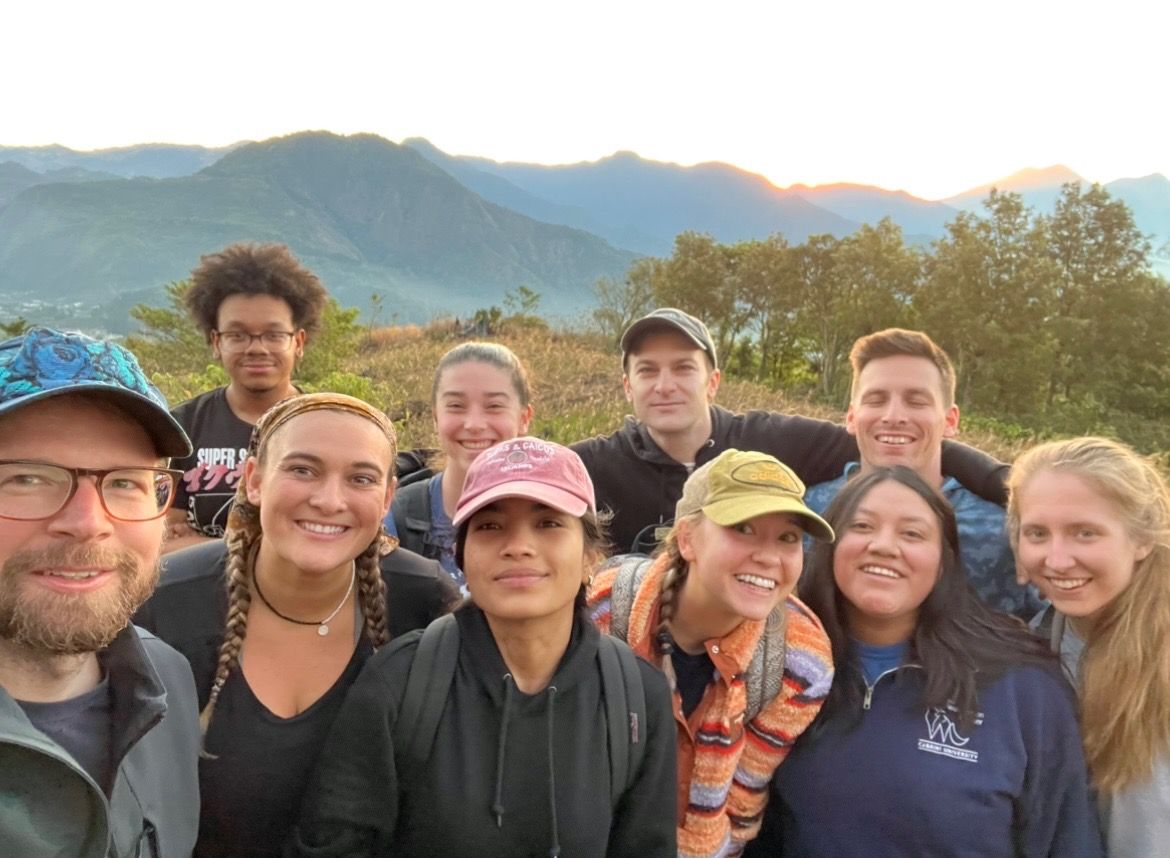This spring, Cabrini University sponsored its 14th short-term study abroad trip to the San Lucas Tolimán Mission in Guatemala.
Dr. Jerry Zurek, emeritus professor of English and communication, and Dr. Raymond Ward, director of Cabrini’s Wolfington Center, organized the trip. From Feb. 25 to March 4, 2023, Cabrini students and alumni joined Zurek and Ward, traveling together to Central America.
Why study abroad?
Statistics show that studying abroad offers numerous benefits for students and their futures. Professor Ann D. Servey, accounting program coordinator, developed Cabrini’s first short-term study abroad course for academic credit in 2009.

“Americans, in general, don’t go out of the country very much,” Zurek explained. “If we go out of the country, we often go to resorts where we live in a ‘little America.’”
“Rarely do we go to what are known as poorer countries … This is an opportunity for students to see what three-quarters of the world is like: how they live, what they do, what kind of people they are, without all the stereotypes we have of people in other parts of the world,” Zurek said.
Zurek has been to Guatemala 14 times and genuinely enjoys his visits. On the trip, the group sees the process of making products that are exported to the United States, such as coffee, vegetables, and fruits.
“We would not live the lives in the U.S. if it weren’t for all of these people around the world who are doing such excellent work,” Zurek said.
Briana Walsh, junior early education major, agrees with Zurek. “I believe that students should participate in short-term study abroad opportunities because they can experience another person’s culture and way of life,” Walsh said. “The experience opens one’s mind and heart as they apply their knowledge from class to real life.”
A day in Guatemala
The group made the most out of each day in Guatemala. “Get up at 7, have breakfast with students from other colleges … Nine o’clock to noon we usually [went] to a work site where we might be building houses, making stoves … Then we would come back to [base camp] for lunch,” Zurek said.

In the afternoons, the group learned skills used in the everyday life of Guatemalans.
“One afternoon we learned how to make tortillas … We learned how to carry water on our heads, carry wood on our back,” Zurek recalled.
After a bit of rest, the group ate dinner and washed dishes. Afterward, the group reflected on their day, what they learned, and what they hope to do with what they learned when they returned to the U.S.
The trip is not all labor-based. Throughout the trip, the group played games of soccer with local residents, as well as bonding with and caring for those around them.
Puja Neopaney, M.B.A student, international business major, said, “My favorite memories from the trip are going shopping in the markets and bargaining because it’s the culture there to haggle.”
Both Neopaney and Walsh’s favorite memories were hiking the base of a volcano at four o’clock in the morning. The group drove 20 minutes to hike the base of Volcán Tolimán, a stratovolcano between Tolimán and Atitlan.
Bringing home “a gift”
Zurek values the chances each trip brings to build relationships with individuals outside of the U.S. “When we do go, what we see are people who are extremely smart, capable, hard-working, and just absolutely wonderful people,” Zurek said. “We also learned that this was a gift given to us … Few Americans have this kind of an opportunity.”
However, Zurek wants his team to keep thinking about Guatemala. Instead, he wants the experience to inspire a better future.
“We thought a lot about what we’re going to do now that we met these people and saw their lives,” Zurek said.
“I would say this immersion trip to Guatemala has benefitted me more than I benefitted the San Lucas community,” Neopaney said. “I learned a deep understanding of the language and culture of the Mayan and Guatemalan people.”

“I have gained greater empathy and cultural sensitivity, which I think are the two qualities necessary for becoming a global citizen … This immersion experience has helped me develop a more global perspective,” Neopaney said.
Similar to Zurek’s opinion, Mendick believes a lot of people in the U.S. are unaware of what is going on in other countries and how others live their lives.
This immersion trip was Mendick’s second time going overseas and learning more about local communities and cultures. Her senior year of high school, Mendick went to Mexico and helped build over 30 houses.
To Mendick, the Guatemala trip was “a very humbling experience: being able to see people with so little and see them at their happiest. I would argue they’re happier than people in America, and the big thing is it will really teach you money can’t buy happiness.”
After the experience, Walsh said, “Something I learned was the sheer contrast to the life I live in comparison to people experiencing poverty. The only difference between people in poverty and people in the U.S. is the lack of money. We have the same dreams and goals.”
Zurek believes the experience is a call to action. He asked his students, “Are you going to be more appreciative for what you have? Are you going to use your voice here in the U.S. to educate other people? Are you going to advocate on behalf of people who have much less than we have when we get back? Are you going to try to help the Guatemalan economy by buying Guatemalan products, by going to Congress and telling Congress that we should support countries like this to a greater extent?”
The short-term study abroad trip to Guatemala occurs every spring semester. Those interested in participating can contact Dr. Zurek or Dr. Ward in the Wolfington Center.



